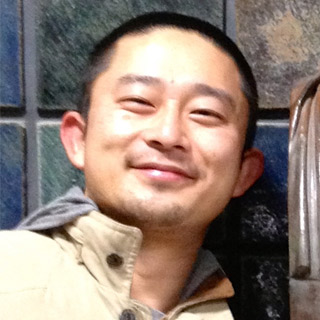Researchers explore the notion of virtue in Japan, with potential implications for both academic integrity and educational policy
Discussions about virtue have been limited to the academic community since its revival in the 20th century, inevitably creating gaps in understanding among the general public. In the multicultural Japanese society, exploring these gaps between educational specialists and the general public could be crucial for shaping educational policy. Now, a study by researchers from Japan shows that while both groups expressed positive views, specialists prioritized intellectual virtues, whereas the public focused more on emotional virtues.

Image title: Word clouds visualizing the words that educational specialists (ESs) and the general public (GP) associate with virtue
Image caption: ESs and the GP in Japan associate different words with virtue. The font size of each word or set of words is proportional to the relative frequency of occurrence.
Image credit: Koji Tachibana from Chiba University
Image Source Link: https://www.frontiersin.org/files/Articles/1171247/fpsyg-14-1171247
Image license: CC BY 4.0 DEED
Virtue is a normative concept comprising a set of moral and social codes acceptable to society. Historically, in the West, especially in ancient Greek and Christian belief systems, virtue was viewed as “excellence” aspirational to all human beings. In contrast, the East, especially in a Confucian belief system, viewed it similarly but being aspirational to only select individuals, such as rulers. However, the rise of modern values and sociopolitical overhauls almost pushed the concept of virtue into oblivion.
In the 20th century, however, virtue was resurged in academic fields, yet it remained relatively dormant in the public consciousness. Virtue impacts society in multiple ways—it is a concept commonly found in many cultures, associated with psychological and sociological studies, and reflected in the educational curricula of a country. Given that the notion of virtue has a multitiered impact on society, exploring potential perception differences between educational specialists (ESs) and the general public (GP) is the need of the hour.
A recent study published in Frontiers in Psychology on 15 February 2024 explored these gaps in multicultural Japanese society. The study, conducted by Dr. Koji Tachibana and Dr. Eisuke Nakazawa, revealed that the concept of virtue was relatively unknown to the GP compared to ESs. The results also showed significant differences in how the GP and ESs perceive virtue. The GP identified with passive, emotional virtues, whereas the ESs identified with active, intellectual virtues. Notably, both groups thought positively of virtue but poorly understood the Confucian concept of virtue.
Dr. Tachibana underscores the significance of the research, stating, “If there is a gap between the GP and ESs on the subject of virtue, where ESs frame discussions or publish textbooks neglecting this gap, they could contain errors in theoretical and empirical research on the concept of virtues and deter the actual design of an education system. Thus, we sought to endeavor on theoretical and practical perspectives to address the gaps between the GP and ESs groups in understanding virtue.”
Accordingly, the team conducted an online survey in Japan targeting both groups. They recruited individuals of various ages and genders for the GP group and individuals from academic societies related to philosophy and education for the ES group. Subsequently, they evaluated the responses for the frequency of encountering the term “virtue” in daily life, the impressions associated with virtue, words associated with virtue, virtues that are difficult to understand, and virtues deemed important to either group.
Notably, the researchers arrived at five main conclusions: Firstly, the ES group was more familiar with the term “virtue” when compared to the GP group. Secondly, both groups held positive impressions of virtue. Thirdly, ESs tend to associate more with ancient Greek virtues, although both groups acknowledged Buddhist elements. Fourthly, there existed a mutual lack of understanding of Confucian virtues. Lastly, differences existed in the emphasis on virtues—the GP leans towards Eastern values while ESs toward Western ones.
These findings reveal that the notion of virtue was being perceived differently by different members of society. Practically, this points to the possibility of a gap in the understanding of the notion of virtue among ESs, which, if neglected, can have negative practical implications. The authors believe that since the ESs hold the power to influence the national curriculum, formulate educational policies, and authorize textbooks in the educational system, they must exercise caution in using the notion of virtue. On the contrary, not exercising caution in doing so could have a detrimental impact on the education system.
Sharing his closing thoughts on the study, Dr. Tachibana says, “Our study showed that ESs and the GP understood virtue differently in Japan. This finding has several social implications in areas such as academic integrity and educational policy.” Indeed, the findings of this study could serve as a trailblazer for future studies about the concept of virtue in society.
About Associate Professor Koji Tachibana
Associate Professor Koji Tachibana specializes in philosophy at the Faculty of Humanities, Chiba University, Japan. He is also an international associate scholar at Georgetown University Medical Center since 2015. Dr. Tachibana investigates the notion of virtue from four perspectives: ancient Greek philosophy, contemporary virtue ethics, Japanese philosophy, and philosophy of science.
Funding:
This research was funded by JSPS KAKENHI 20H01178.
Reference:
Title of original paper: The consciousness of virtue: uncovering the gaps between educational specialists and the general public in their understanding of virtue in Japan
Authors: Koji Tachibana1,2* and Eisuke Nakazawa3
Affiliations:
- Faculty of Humanities, Chiba University, Chiba, Japan
- Pellegrino Center for Clinical Bioethics, Georgetown University Medical Center, Washington DC, United States
- Faculty of Medicine, Department of Biomedical Ethics, The University of Tokyo, Tokyo, Japan
Journal: Frontiers in Psychology
DOI: 10.3389/fpsyg.2023.1171247
Contact: Koji Tachibana
Associate Professor, Chiba University
Email: koji.tachibana@chiba-u.jp
Public Relations Office, Chiba University
Address: 1-33 Yayoi, Inage, Chiba 263-8522 JAPAN
Email: koho-press@chiba-u.jp
Tel: +81-43-290-2018
Recommend
-

Evolutionary Psychology: A Path to a Nature-Positive Future for Biodiversity
2025.01.31
-

‘Synergistic Campus Evolution with the Community’ Chiba University Design Research Institute (Part 2): Igniting ‘Cross-fertilization’ for a Revolutionary Vision
2023.12.25
-

The role of the Research Institute of Disaster Medicine (RIDM): The indispensable research hub for urban digital transformation
2023.02.23


